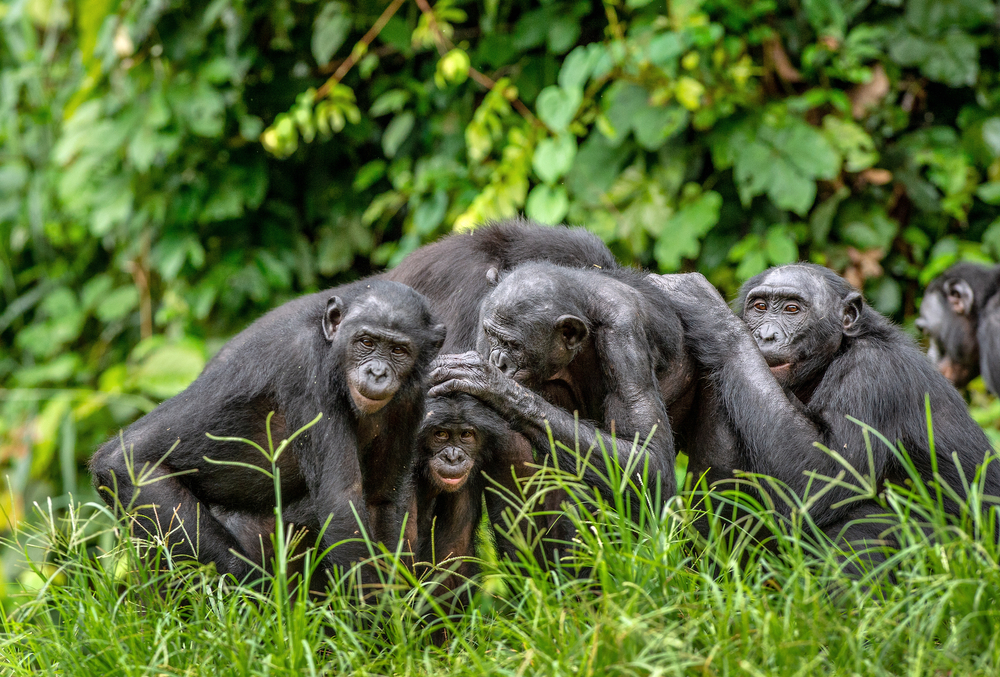
There is viral TikTok video with over 300 million views showing a distressed toddler crying to his mother, “I’m just a baby!” Acting childish might not get the toddler what he wants, but new research suggests it might help a beleaguered bonobo.
Bonobos are one of our closest living ancestors. Affectionately called “make love not war” monkey, they are famous for their social tolerance, acceptance of outside groups and an eye for emotion.
In new study, the researchers found that attacked bonobos used infantile behavior to call for help, most often around large crowds. The findings show that bonobos selectively communicate their distress when it is most impactful. Flexible display of emotion was previously thought to be uniquely human, but the new finding may point to more ancient origins.
“Our research shows that emotions and their expression not only play a role in regulating social life in our own species, but also in our closest living primate relatives,” says lead author Raphaela Hessen from Durham University in the UK in press release.
The team studied how bonobos responded to attacks by others in Lola the Bonobo Sanctuary in the Democratic Republic of the Congo. As the only bonobo sanctuary and wildlife recovery program in the world, the population includes individuals rescued from the meat trade as well as those born in the sanctuary.
The scientists observed two groups of about 20 individuals over two summers. They note when the victims were attacked, how they behaved afterwards and whether others came to comfort them. They also counted how many other bonobos were nearby and quantified their strong social bonds with the victim. The team was particularly interested in the infant-like behavior, which included tantrums, sulking and reaching for help.
Bonobos are more likely to comfort victims who commit childish acts. Their attacker is also less likely to rob those people again.
What’s more interesting, the authors write, is when the bonobos chose to deploy the signals. They used youthful behavior for longer when there were larger crowds to hear them. Furthermore, attacked bonobos stopped crying for help as soon as a conspecific approached them.
“Bonobos are highly sensitive to social situations and their surroundings,” says Hessen. They “communicate their emotional states in flexible ways to influence their group members.”
Some experts argue that humans’ ability to express feelings in a controlled manner may have helped us maintain complex social groups. If true, this would eventually lead to language and the ability to communicate complex emotions. It’s possible that such emotional control evolved before humans split from bonobos and chimpanzees, the authors say, but scientists need more data from other apes to know for sure.

